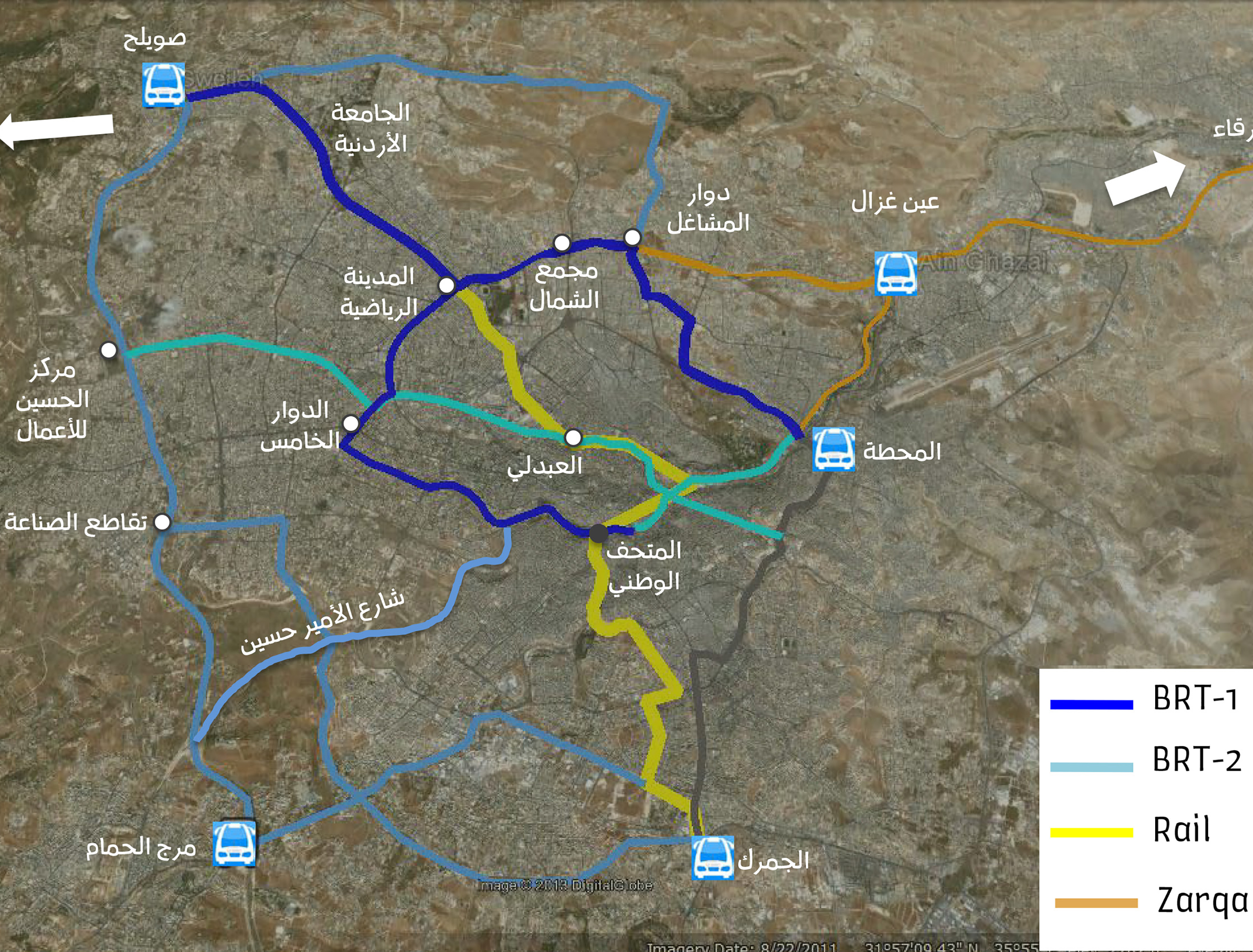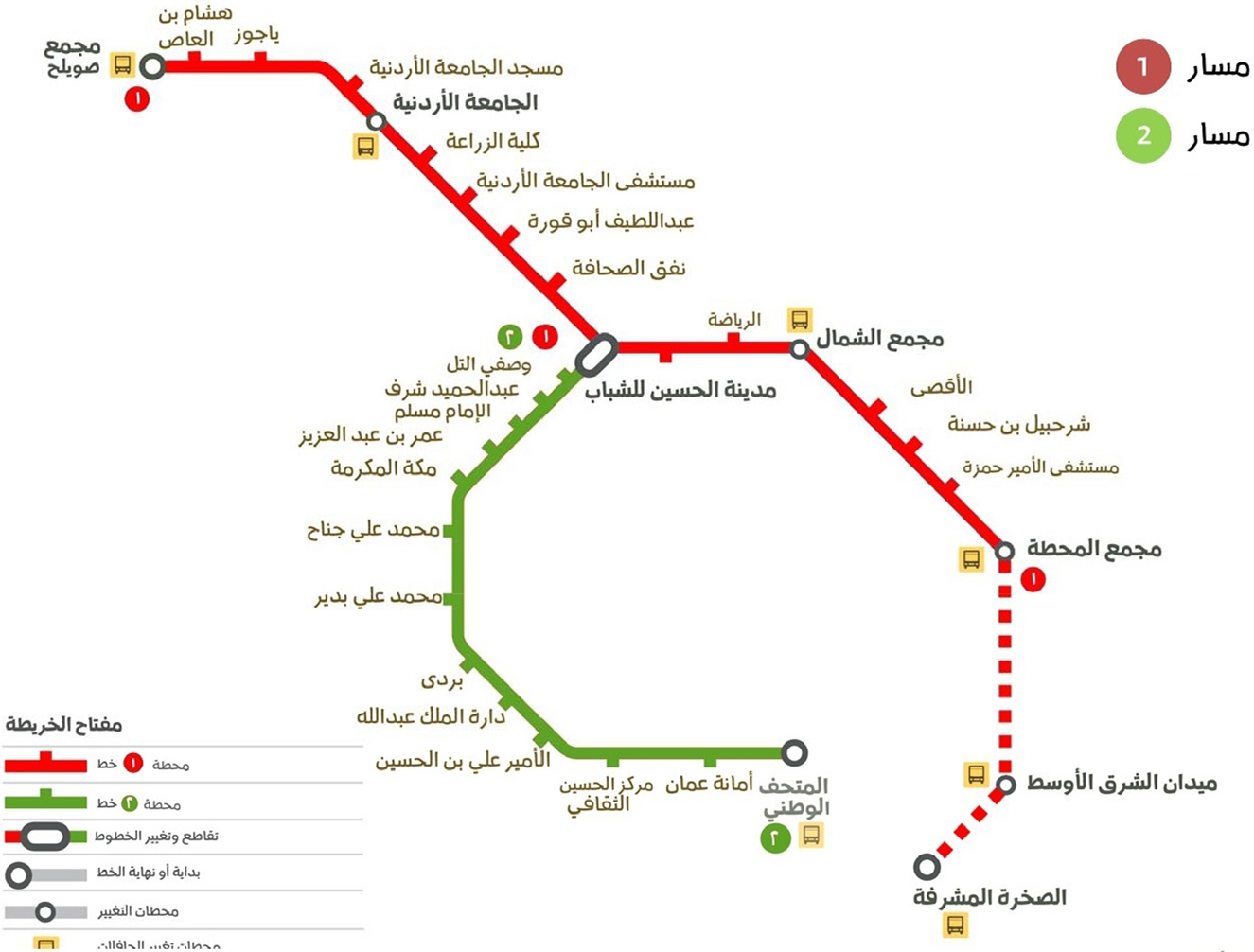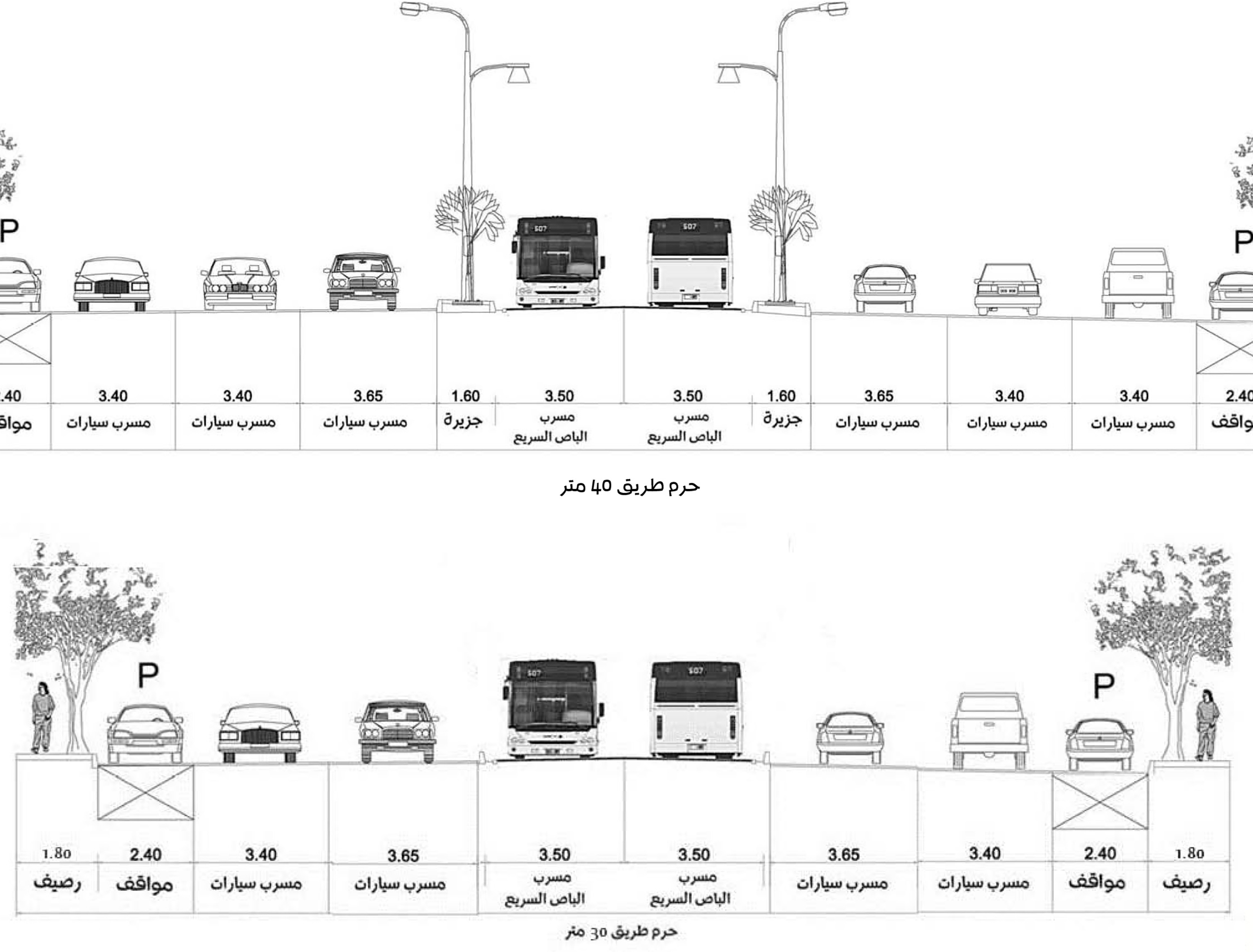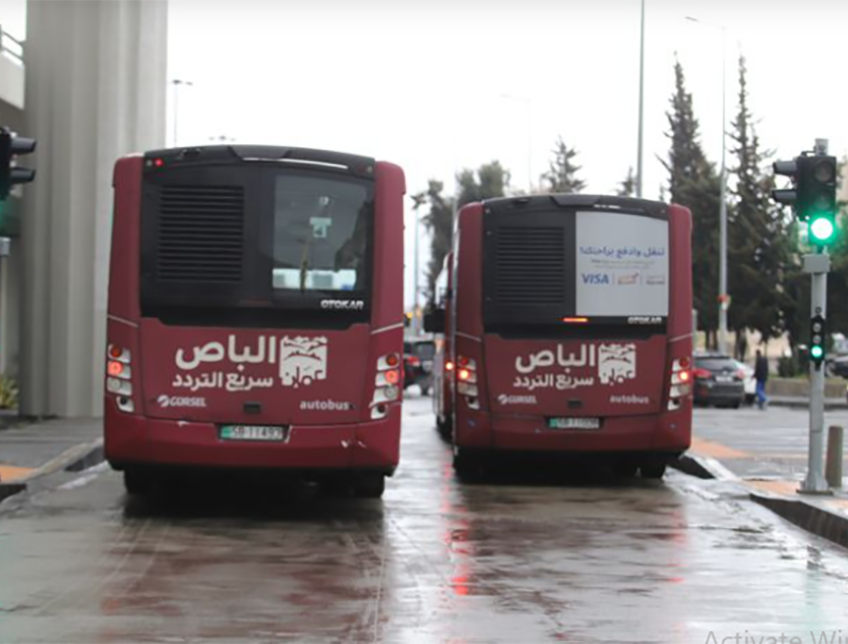
Close

Approach Words: Comprehensive Planning, Integrated City, Urban Livability
Public Policy Instruments: Financial Mechanism, Physical Intervention, Planning
The Bus Rapid Transit (BRT) in Amman is a network of large-capacity, rapid buses that operate on dedicated lanes throughout the city. It is designed to transport more than 315,000 passengers daily across Amman. The project is part of a larger vision to establish “a flexible and fully integrated public transportation system that provides rapid, safe, and highly reliable service”.i The BRT aims to enhance mass public transportation to meet the needs of Amman’s residents and visitors, improve travel conditions, and increase accessibility to employment areas.1 Furthermore, it seeks to sustainably ensure the city’s growth, fulfilling the vision of an organized, modern, and viable urban center.2 As such, the BRT system is expected to play a crucial role in Amman’s urban development and mobility strategy.

Title: The integrated public transportation system lines in Amman.
Source: Click Here

Title: BRT Amman Lines.
Source: Click Here

Title: Sections showing the bus lanes design.
Source: Click Here

Title: BRT Amman
Source: Click Here
The BRT network connects major transit routes in Amman3 through two main implemented lines4 that intersect at Sports City, covering a total length of 30 kilometers:5
The BRT system encompasses bus stops along dedicated lanes, passenger information points, interchanges, and terminal stations. Buses are expected to operate with frequencies as short as 3 minutes along the busiest corridors in Amman.16 Each bus in the rapid transit system can accommodate approximately 150 passengers.17
Here, the BRT system is part of a wider existing public transport network18 that includes specific intermediaries, such as regular buses or smaller vehicles, which complement the network. These intermediaries transport passengers to the nearest rapid bus station, minimizing waiting times and ensuring a seamless and convenient service.19 Additionally, 4,000 indigenous trees will be planted on the central islands separating the express bus lanes from the vehicle lanes on the first axis.20

Owner/Developer (Public)

The BRT project was initiated by the Greater Amman Municipality in 2010.21 However, it was halted in 2011 due to concerns regarding its funding capabilities.22 In 2015, the government recommenced the project as part of a broader plan to offer transportation solutions and alleviate traffic congestion in Amman.23 Lanes intersections design was assigned to Engicon company.24
The project infrastructure was implemented by several companies, including Haddadin Engineering and Contracting Company,25 Bab Al-Sharq Contracting Company,26 Al-Masar and Ahmad Yousef Al-Tarawneh Consortium,27 and Haymour Cousins & Partner Contracting Company.28 This implementation includes the construction of bus lanes, stations, and terminals. It also involves road improvements to mitigate existing traffic congestion issues at crucial intersections along the BRT routes.29 The project is operated by Royat Amman company.30
The project’s overall cost is approximately $250 million, with two-thirds of the funding provided by the French Development Agency (AFD).31
Project Link
Endnotes
References